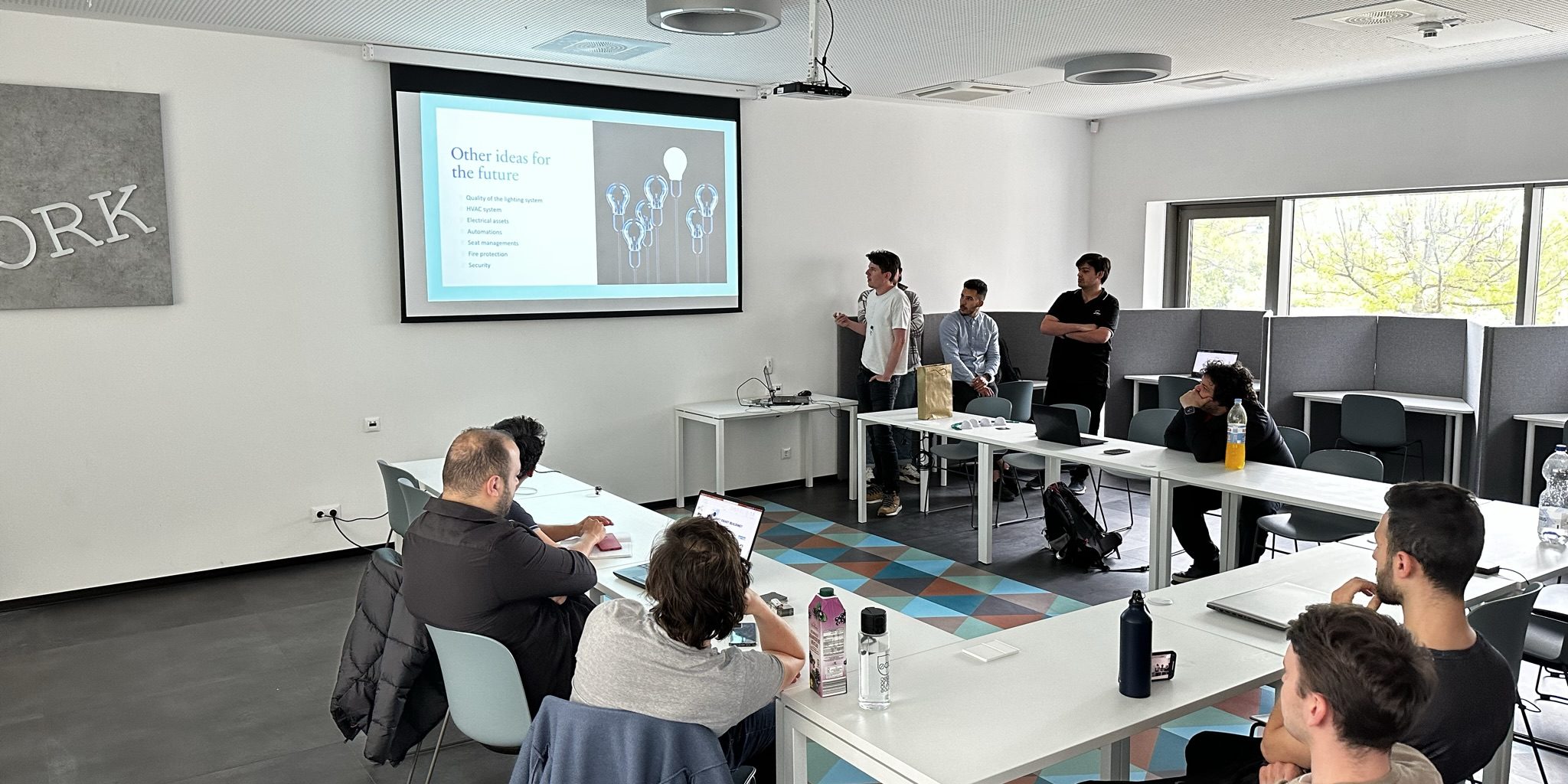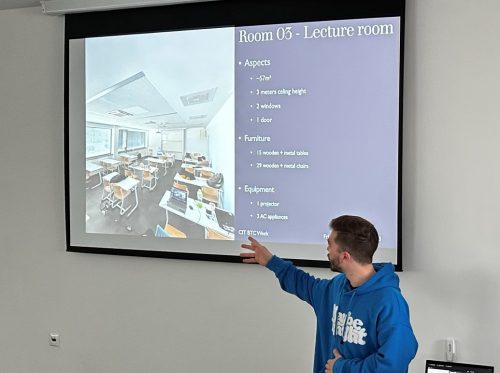Students at BME during the “European Engineering Projectwork” course.
In this interview, Dr. Lovas Tamás, in charge of the development and implementation of the course, as well as students Levente Szatmari and Othman Beirumi, give us some insights into the experience.
Q. Dr. Tamás, what is the motivation behind the launching of this course and the main goals you aim to achieve?
A. We wanted to get students involved in EELISA communities; not just being a member of a community but do activities, broaden their area of interest, develop non-engineering skills.
Q. What is the balance in terms of participation and engagement so far?
A. Students enjoy attending non-engineering courses, meet professors from other faculties, use tools they never used before, and they’re especially excited to attend the hackathon in Madrid. They’re working in groups, all group members are actively participating in the activities.
Q. In your experience, how is this course impacting the life of studens and how it will impact their careers in the long term?
A. This is the first time we offer such course, but I think it has a remarkable impact. This is the first time our engineering students created a business plan, attended on sales lecture, learned about professional presentation, and used online project management tools; soft skills that are especially important to an entrepreneur, leader. This course is connected to their engineering projectwork where students are building smart homes, therefore students immediately learn how hard and soft skills are connected, how they strengthen each other.
Q. One of the main goals of the EELISA Alliance is to propose a compelling, implementable, and shared vision of the profile of the EELISA European Engineer. How is your course connected to this new model and its development?
A. Besides technical skills, the collaboration- , communication-, leadership-, personal development- are especially important in the EELISA European Engineer model. Such course, by completing the engineering program, is supporting these goals. More than half of the students are international students, all activities are in English, students are working in mixed groups, this is a great intercultural experience to them. Obviously, a 5-ECTS course cannot fundamentally change the learning outcomes of a 90-ECTS master program, but we can collect best practices through such courses; integrate them in the education programs etc.
Dr. Lovas Tamás, associate professor, BME. He is the coordinator of the BIM and construction information technology programs at the Faculty of Civil Engineering. Besides education management, his areas of interest are geoinformatics, BIM, point cloud processing.
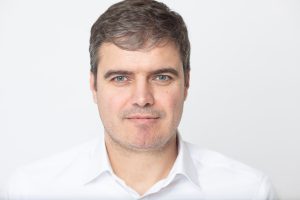
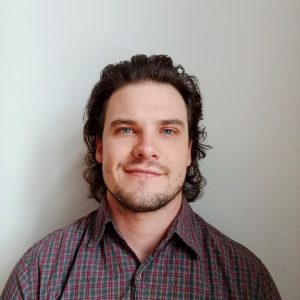
Levente is a master’s student at the BME Faculty of Civil Engineering Construction Information Technology programme, and the vice president of the BME University Fencing Club.
Levente Szatmari
“During the whole semester while taking the European Engineering Project work course we have got many informative and interesting lectures that required homework regarding the topic. The focus was on developing our soft skills, which are highly needed characteristics of a modern engineer, such as presentation skills and business plan creation. At the end of semester, we spent a week in Madrid, Spain, participating a Hackathon where we able to practice these new skills. I enjoyed this semester’s work regarding EELISA courses, and highly recommend for all those European students who want to develop themselves over their comfort zones, yet in the company of people with common interests.”
Othman Beirumi
“I had the opportunity to attend the European Engineering Project Work course at BME. This course is directly connected to the EELISA program and I can say confidently that it is one of a kind subject that I have ever attended. The course has exceeded my expectations, especially it is out of the domain. I didn’t only work on engineering-related topics, but also on business and economics related topics that deepen my expertise. I used to work in a team, where we had collaborated in designing an idea concerning the construction industry using AI, then choosing a project management methodology and software. We created tasks and set deadlines accordingly. We also worked on preparing the business plan as well as the business model canvas. In the first week of June 2023, we moved to Madrid to cooperate with other students and work on engineering and technology projects at UPM.”
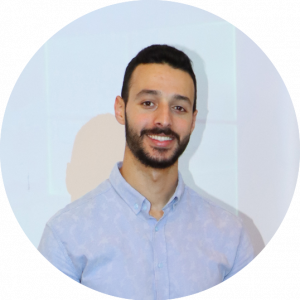
Othman is a civil engineer and currently pursuing my master’s study in construction information technology engineering at Budapest University of Technology and economics. He is an entrepreneur and has experience in programming, app development and project management.

